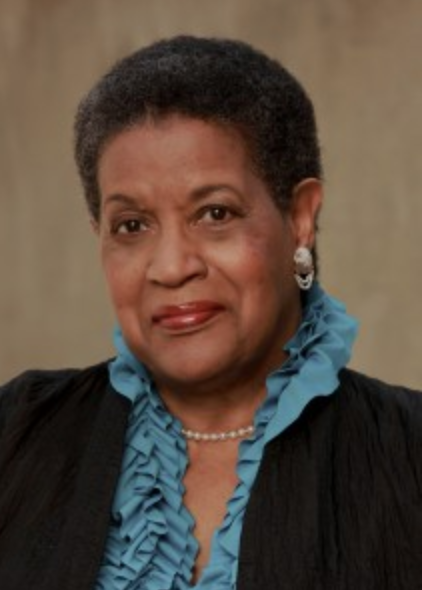By Ittai Sopher
Veteran civil-rights activist Myrlie Evers-Williams described her first-hand experiences with Claremont’s history of racial discrimination and prejudice in a panel at Pomona, Feb. 25.
“Myrlie, if we ever leave Mississippi, we will move to California,” Evers-Williams late-husband, Medgar Evers, told her before he was killed in 1963 by a white supremacist. Evers-Williams and her husband were leading figures in the fight for civil rights in Mississippi during the 1950s and 1960s. Evers-Williams followed her husband’s advice noting that, “at that point in my life, I think almost everything I did was based on what I thought Medgar would have approved of.”
“I decided on Claremont solely because of Pomona College” said to applause from an audience that included both current Pomona President G. Gabrielle Starr and former Pomona President David Oxtoby. Evers-Williams described Pomona students as the most avid campaigners and supporters of her unsuccessful 1970 bid for the U.S. House of Representatives, which took place shortly after her graduation from the university in 1968.
“My children and I were the second family of color to move here,” Evers-Williams recalls, “there were certainly people who disagreed with our being in this city, in this town, there were a few threats.” However, the racial prejudice in Claremont never intimidated Evers-Williams, “I made it a point to go to every restaurant, that I could, and to get a seat upfront. To go to every activity here, that I could go to, so my face could be seen. It was like; ‘here I am what are you going to do about it?” Evers-Williams also acknowledged, Len Munter, a principal of a local public school who defended her children’s’ rights to attend, as well as, Curtis Real Estate, a local group that sold Evers-Williams’ family their home despite ubiquitous housing discrimination. Evers-Williams’ children also faced discrimination from members of the Claremont community, after they enrolled in a local public school. In one instance, Evers-Williams described an incident in which a student repeatedly harassed her son by touching his afro: “My son told him to stop a number of times,” Evers-Williams said. “He reported it to the teacher, the teacher did nothing about. And one last time, this young boy put his hands in his hair, and my son did as I told him exactly what you should have done: he punched him out.” For Evers-Williams, this altercation between her son and another student reveals her personal philosophies about the limits of nonviolence: “After you take your complaints, whether it’s at a state, local or national level, to all the levels that you possibly can. To have someone say they will look into it and nothing happens,” Evers-Williams said. “It’s sad to say it, but sometimes we have to take things into our own hands.” At the end of the discussion, Evers-Williams turned to the audience and implored them to seek out the injustices within their own communities: “If you wish not to be actively involved in change, at least be aware of what is happening and the need for change,” Evers-Williams said, “positive change does not come without involvement from each and every one of us.” The panel, led by Pomona politics professor Dr. Lorn Foster, also included the Rev. James Lawson Jr., who spoke mostly about his experience promoting nonviolence within the Student Nonviolent Coordinating Committee. “Racism is not always overt” Foster said regarding current attitudes toward People of Color in Claremont, during an interview with the Scripps Voice last Wednesday, “it’s the stares in the neighborhood- it’s, will somebody play with your kids, will you get invited to a potluck?”
“[Dr. King] realized that there were three evils that existed in the united states: one was racism the other was poverty, and the other was war … His goal was in the last year of his life to end all three. they were basically a french braid” Professor Foster said bridging the conversation with Evers-Williams to the legacy of Dr. King on the 50th anniversary of his death, “we still we have poverty in numbers that are disheartening … and we still have war …but we have the promise but that maybe we can create a beloved community”
Image Credit to the Medgar and Myrlie Evers Institute



